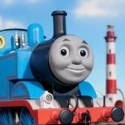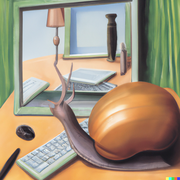|
thehustler posted:http://www.bbc.co.uk/news/uk-politics-22700805 quote:Between 1923 and 1947 the so-called Big Four government-supported firms ran the roost and journeys fell to about 1.2 billion by the onset of the Second World War. Phew, I wonder why the number of people traveling by train decreased in the 1930's. It sounds like some kind of Great Depression of rail journey figures 
|
|
|
|

|
| # ? May 27, 2024 06:59 |
|
MrL_JaKiri posted:Phew, I wonder why the number of people traveling by train decreased in the 1930's. It sounds like some kind of Great Depression of rail journey figures Using phrases like "government supported" shows these people have no idea about railway history and are just pulling stuff out of their arses to try and justify their views. The only involvement the government had was merging smaller companies together, and if they hadn't done that half of them would have gone bust after WWI and we'd have a much shitter network today. Sometimes it didn't even do that. These companies had complete corporate freedom within the regulations to close lines and reduce services and yet most of them could barely make a profit.
|
|
|
|
Comment is Free writer argues that the trains are better than ever, seemingly because the West Coast Main Line is pretty posh and the people running the most lucrative intercity lines have a bit of cash to throw around. http://www.theguardian.com/commentisfree/2013/aug/15/nostalgia-british-rail-trains-better quote:Forget the nostalgia for British Rail – our trains are better than ever He seems to argue that "more investment" wouild help, but has there been any investment? The already glacial pace of input from RoSCos and ToCs surely won't be helped by cutting subsidies and making them shoulder more costs?
|
|
|
|
penus de milo posted:Comment is Free writer argues that the trains are better than ever, seemingly because the West Coast Main Line is pretty posh and the people running the most lucrative intercity lines have a bit of cash to throw around. He keeps using this word "competition". I do not think it means what he thinks it means.
|
|
|
|
Read that article on the bus this morning and nearly threw my phone out the window in an angry rage. One of the most ill informed pieces of writing I've read in a long time. I mean, using the loving West Coast Main Line as an example of how privatisation worked is just comedy loving gold. I wish I could debate these knobheads in person.
|
|
|
|
Tosspot on BBC News posted:The solution to our current problems is not more state bungling, it is a return to diversity, competition and open markets. I'm not entirely sure "Open Markets" and Railways are really compatible with each other. If I decide to visit my parents I can either travel First Great Western or First Great Western. Open Market! As a side note. When you work for a Privatisation and Tax reform think tank, I'm going to treat everything you say with a large degree of skepticism.
|
|
|
|
National rail (the glorious free market) carried 1156 million people in 2010-2011. State owned London Underground (a wholly owned subsidiary of TfL) carried 1171 million in the same period. Using these figures we can see that private enterprise is not best for the railways as the free marketeers would expect them to outperform bungling state actors. Unless geographic location and railways being fixed assets have something to do with it in which case they should admit you can't have a free market at all. In other words, suck it franchisees, full communism as my poorly made argument supports.
|
|
|
|
Bozza posted:Read that article on the bus this morning and nearly threw my phone out the window in an angry rage. Tried emailing the Guardian and asking whether you couldn't do contribute a response piece? e: actually I suppose the Network Rail PR department wouldn't be too happy with you for that
|
|
|
|
Mahmoud Ahmadinejad posted:National rail (the glorious free market) carried 1156 million people in 2010-2011. State owned London Underground (a wholly owned subsidiary of TfL) carried 1171 million in the same period. Is this really a fair comparison, though? Obviously lots of people in London use the Tube because it's pretty much the only viable option. Not saying I love franchising, by the way, just playing devils advocate.
|
|
|
|
thehustler posted:Is this really a fair comparison, though? Obviously lots of people in London use the Tube because it's pretty much the only viable option. That was his exact point.
|
|
|
|
Sri.Theo posted:That was his exact point. I appear to have had a satire/joke bypass today 
|
|
|
|
coffeetable posted:Tried emailing the Guardian and asking whether you couldn't do contribute a response piece? Nobody wants to hear from anyone that actually knows anything. The closest we get to informed opinions in the popular press is Christian Woolmar. Some of the trade press is better, Rail News for instance, but you're unlikely to see anything written in a proper newspaper by anybody that actually works in the industry. I will give you an example of how privatisation causes loving nonsense: we have just specified a level crossing (yes I know...) to replace an existing non-compliant one. Network Rail are paying for it, so have gone for a low cost, staff operated barrier as it is only a freight line. A major freight operating company have basically kicked up a stink because they want a full automatic barrier. The reason they want NR to provide this is because if the automatic crossing fails, NR pays the fines for delaying trains, however if the staffed crossing isn't opened in time because their shunter gets lost or fails to turn up, they pay the fines, so they are currently arguing that NR should shell out more money to lower the risk on their operations. This will go round and round and round at great cost to the tax payer, not solve the issue (simply who will be paying for it) and cause major holdups to the scheme. I have a similar issue which has actually gone to the court of arbitration with a TOC who are refusing to allow a bit of line be closed for similar reasons (though it's the right thing to do for the railway, and lowers the asset costs by ~£2m). Basically, everybody in a capitalist system is out for themselves and all this does is create money for the lawyers and shaft the railway as a whole. Interestingly, in both cases, members of staff from both companies agreed with what we were doing 'as railwaymen' but couldn't agree to it 'as a commercial business'. Says it all really.
|
|
|
|
Something just occurred to me re. the electrification of the North West: for the short haul routes, are we going to get electric multiple units as a direct replacement for the lovely diesel coaches we have now, or use locomotives with non-powered carriages for everything? Or is new rolling stock acquisition not even on the table yet?
|
|
|
|
Renaissance Robot posted:Something just occurred to me re. the electrification of the North West: for the short haul routes, are we going to get electric multiple units as a direct replacement for the lovely diesel coaches we have now, or use locomotives with non-powered carriages for everything? Or is new rolling stock acquisition not even on the table yet? Rolling stock cascade is the aim of the game. Think you're getting the 319s from Thameslink.
|
|
|
|
 lol 319s
|
|
|
|
319's look pretty sweet, then again I did work a 142 yesterday. It's impossible to write on one of those.
|
|
|
|
Heh, Pacers.Mahmoud Ahmadinejad posted:
They're basically exactly what we have now (185s I think), right down to the livery, but electric instead of diesel. So, yeah. Technically a step up, but I'm still going to struggle with my bike. 
|
|
|
|
I just did some googling and they look like the Northern Rail trains but with train seats instead of '60s bus-style benches, which frankly I'll take.
|
|
|
|
I'm working a pacer right now and I have got managed to get 4 bikes, 3 prams and a wheelchair on: I'm loving David Copperfield.
|
|
|
|
Pretty drat impressive doing all that at once. Does he cuddle afterwards?
|
|
|
|
In terms of rolling stock. Because I love For example - The Pendolino trains are fantastically quiet anywhere you sit in them. You only hear little thuds from the gaps or junctions. But the class 323's between Stockport and Manchester make that lovely electric "shifting" sound: https://www.youtube.com/watch?v=w_3_kygNNRg The class 175s that Arriva run are the quietest diesel trains on the inside that I've been on and I've already assumed that the designers of the Pacers decided that we don't need ears anyway.
|
|
|
|
Cancelbot posted:In terms of rolling stock. Because I love Probably but I don't think they're all that stringent because Super Voyagers exist and they are terrible units.
|
|
|
|
Today, I got to experience the "STOP ALL TRAINS" button on the DLR. They do stop pretty rapidly. Unauthorised people on the track somewhere, apparently.
|
|
|
|
Brovine posted:Today, I got to experience the "STOP ALL TRAINS" button on the DLR. They do stop pretty rapidly. I used to go to school on the first batch of DLR rolling stock, which had inward-opening doors which - at the right speed and wind conditions - would believe they'd opened and slam the brakes on, almost inevitably right in the middle of the then-fastest section of track between Limehouse and Westferry. Lads from my school would try and position themselves up-train from attractive women so they could "help" them if it happened.
|
|
|
|
Cancelbot posted:In terms of rolling stock. Because I love I remember stumbling across a standard describing allowable "transient air pressure changes within the carriage"- effectively how hard your ears can pop when the train goes through a tunnel. If that's been limited, I should think that carriage behaviour like sway, ride roughness and running noise would be too. From a track point of view, bouncy, harder riding trains put more loads into the rails, track bed and structures and wear them out quicker. I did a walkout on Manchester Metrolink once, and you could see an oscillating wear pattern down the rail head where the rolling stock suspension had reached some sort of harmonic frequency.
|
|
|
|
Endjinneer posted:I remember stumbling across a standard describing allowable "transient air pressure changes within the carriage"- effectively how hard your ears can pop when the train goes through a tunnel. If that's been limited, I should think that carriage behaviour like sway, ride roughness and running noise would be too. This is one of those things that is best summed up with "it's really loving complicated" because I remember trying to understand how P1, P2, P3 track forces interact and cause track damage and my brain nearly melted. The long and the short of it really is that unsprung weight = bad, stiff suspension provides better stability at high speed but crappy performance on curve, soft suspension curves better but becomes unstable at high speeds. P-Way is hard.
|
|
|
|
Bozza, OHLE related question: Just to the north of Coppermill Junction (Tottenham Hale --> Liverpool Street/Stratford), there are some strange spirals, balls and discs attached to the cables that run between the top outer corners of the overhead line masts. What are they for?
|
|
|
|
Brovine posted:Bozza, OHLE related question: Just to the north of Coppermill Junction (Tottenham Hale --> Liverpool Street/Stratford), there are some strange spirals, balls and discs attached to the cables that run between the top outer corners of the overhead line masts. What are they for? Do you mean this stuff? http://en.wikipedia.org/wiki/Overhead_line#Tensioning
|
|
|
|
Jonnty posted:Do you mean this stuff? http://en.wikipedia.org/wiki/Overhead_line#Tensioning Nope, I mean bright red plastic-looking balls and springs, and dangly discs. If they were near a vegetable patch I'd assume they were to scare birds. But I don't see why you would put them up to scare birds for a couple hundred metres there, and nowhere else.
|
|
|
|
Must be something unique to that area? I had to do a an examination of the OHLE with my driver on Monday evening when a Pendelino broke down between Carnforth and Lancaster and never noticed those. That particular incident made everything two house late  http://www.manchestereveningnews.co.uk/news/greater-manchester-news/run-trains-well-save-20m-5851454#.Ui1ukdo0-8k.facebook This would be a catastrophe I think, especially in my area (Cumbria).
|
|
|
|
Brovine posted:Bozza, OHLE related question: Just to the north of Coppermill Junction (Tottenham Hale --> Liverpool Street/Stratford), there are some strange spirals, balls and discs attached to the cables that run between the top outer corners of the overhead line masts. What are they for? Usually those are for visibility so low-flying aircraft don't hit them. Do they look anything like this?  Cancelbot posted:In terms of rolling stock. Because I love That "shifting" sound is the noise of the inverters converting DC to AC for the induction motors, there's a few trains that actually play a little melody with them by programming it to use harmonic frequencies to drive the motors https://www.youtube.com/watch?v=T6sz_WRPBFA
|
|
|
|
Brovine posted:Bozza, OHLE related question: Just to the north of Coppermill Junction (Tottenham Hale --> Liverpool Street/Stratford), there are some strange spirals, balls and discs attached to the cables that run between the top outer corners of the overhead line masts. What are they for? I'd like to try to answer this one, if I may? You could be talking about some kind of decoration to increase visual presence. I've seen red warning triangles fixed to overhead wires (ok earth wires if we're being precise, they don't carry current except when something goes wrong) where a road runs parallel and close to the railway. These would be to stop someone on the road driving say a hedge trimmer or telehandler, or just a long load, from hitting the wires. Or you could be talking about the OLE switching. Overhead lines are divided into sections so that bits can be powered down and replaced, or safely worked around. To allow this to happen, you have a mast which supports a gigantic, high voltage version of your lamp switch. In this case, the spirals and balls and discs would be on a gantry reaching across the tracks. Or you could be talking about some sort of point discharge rig to prevent lightning strikes, but this is a guess.
|
|
|
|
Would it be worth doing a HS2 infobomb? Regardless of the utility of the specific route, it's rather annoying seeing people want to shoot ourselves in the foot for "ARE GARDENS  ". ".
|
|
|
|
I think Bozza did an effort post on HS2 a while back, you could try looking through his post history in this thread.
|
|
|
|
Is it this article you're talking about Lady Gaza? I'd still read an HS2 infobomb though.
|
|
|
|
My office is just about to start work on design the HS2 enabling works so they better not cancel it now
|
|
|
|
At least you'd have more time to tell us about level crossings!
|
|
|
|
Autumn 2015, Bozza is delighted to present to the thread 'A treatise on British Level Crossings'
|
|
|
|
Bringing an event known as the Bozza crossings.
|
|
|
|

|
| # ? May 27, 2024 06:59 |
|
Authorities claiming the derailed Nuclear Flask Train at Barrow had empty flasks anyway, I would have thought the police would have sufficed rather than the army in that case?
|
|
|





























